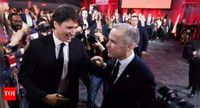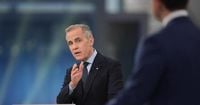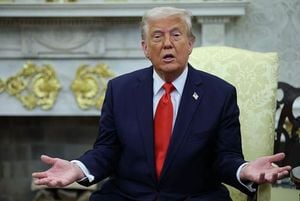In a stunning political shift, Mark Carney has taken the reins as Canada’s 24th prime minister and leader of the Liberal Party, succeeding Justin Trudeau amid a turbulent political landscape. Carney, who officially became prime minister on March 9, 2025, is not only a seasoned politician but also a former financial titan, having served as the governor of both the Bank of Canada and the Bank of England.
Born in Fort Smith, Northwest Territories, and raised in Edmonton, Alberta, Carney graduated from Harvard University with a bachelor’s degree in economics in 1988. He later earned a master’s degree and a doctorate from the University of Oxford. Before entering politics, Carney spent 13 years at Goldman Sachs, where he held various positions across major global offices. His financial acumen was evident as he played pivotal roles during significant economic events, including South Africa’s post-apartheid bond market ventures and the 1998 Russian financial crisis.
Carney’s political career began in earnest when he was appointed as the eighth governor of the Bank of Canada from 2008 to 2013, where he navigated the country through the global financial crisis. In 2013, he took on the role of governor of the Bank of England, where he managed the British economy during Brexit and the early stages of the COVID-19 pandemic. His tenure at the Bank of England solidified his reputation as a leading economist on the world stage.
After leaving central banking, Carney continued to influence global finance as the chair and head of impact investing at Brookfield Asset Management and as a board member of Bloomberg L.P. His commitment to climate action was recognized when he was appointed as the United Nations Special Envoy for climate action and finance in March 2020. Additionally, he advised Trudeau during the pandemic and chaired the Liberal Party’s economic growth task force.
Carney's financial portfolio is impressive, with an estimated net worth of $6.97 million as of 2025, largely accrued through his corporate roles and his extensive career in finance. Reflecting on his time at Goldman Sachs, he remarked, “When I worked for Goldman Sachs, it wasn't the most toxic brand in global finance, it was the best brand in world finance.”
As prime minister, Carney faces immediate challenges, particularly in the context of rising nationalism fueled by U.S. President Donald Trump’s aggressive policies towards Canada. During a French-language leaders’ debate on April 16, 2025, Carney emphasized that the key question in the upcoming election is who is best equipped to deal with Trump. His Conservative rival, Pierre Poilievre, criticized Carney for not representing a significant change from Trudeau’s decade-long leadership.
Poilievre’s argument hinges on the sentiment that Canadians are frustrated with the current state of affairs, particularly as food and housing prices have surged. He has urged voters not to grant the Liberals a fourth term, asserting that Carney is merely a continuation of the previous administration. Carney countered this claim, stating, “Mr. Poilievre is not Justin Trudeau. I’m not Justin Trudeau either. In this election, the question is who is going to face Mr. Trump.”
Amid these political tensions, the Liberal Party has seen a recent surge in popularity. A mid-January poll by Nanos indicated that the Liberals trailed the Conservatives by a substantial margin of 47% to 20%. However, as of April 16, the latest Nanos poll showed the Liberals leading by eight percentage points, a notable turnaround that has energized Carney’s campaign.
The debate was strategically scheduled to avoid conflict with a Montreal Canadiens hockey game, underscoring the cultural significance of hockey in Canadian politics. This is not the first instance where sports have intersected with political events in Canada, as seen in previous elections.
Carney’s approach to leadership and governance focuses heavily on economic growth. He has stated, “In fact, in this circumstance that we are in, given the scale of the crisis, I would say relentless focus on growing the economy.” His commitment to economic issues resonates with many Canadians who are concerned about their financial futures in light of recent challenges.
As the April 28 election date approaches, Carney's leadership will be tested. His ability to address the concerns of Canadians, particularly in relation to Trump’s policies and the economic landscape, will be crucial in determining the outcome of this election. The political climate remains charged, with public opinion shifting rapidly as voters weigh their options.
In summary, Mark Carney’s rise to the position of prime minister marks a significant moment in Canadian politics. With a robust background in economics and finance, combined with a clear focus on addressing the pressing issues facing the nation, Carney is poised to make a substantial impact. However, the upcoming election will ultimately decide if he can translate his experience into lasting political success.





